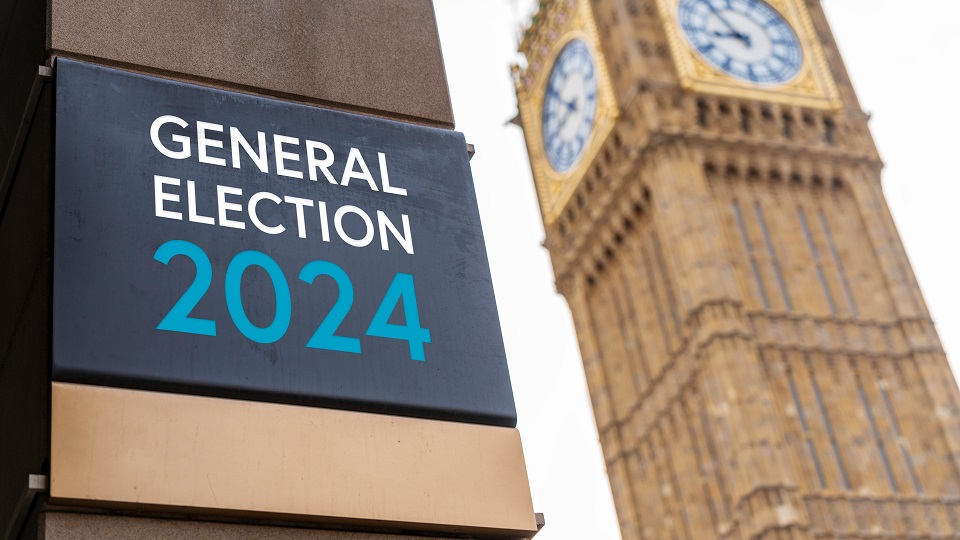Comment | 'North Staffordshire will be one of the central battlegrounds of the election'

By Dr Gemma Loomes, lecturer in comparative politics, Keele University. This article first appeared as a Personally Speaking column in the Stoke Sentinel in June, 2024.
In 2019, the historic victories for the Conservative Party in the three Stoke-on-Trent seats and in Newcastle-under-Lyme reflected the broader national picture. Many previously loyal Labour voters in Red Wall seats across the Midlands and north of England lent their vote to Boris Johnson's Conservative Party, trusting him to 'get Brexit done', bring prosperity and level-up 'left-behind' areas of the countries.
Next month, local voters will be given the opportunity to deliver their verdict on whether the Conservative Party have delivered on their promises, and North Staffordshire yet again will be one of the central battlegrounds of the 2024 general election. Angela Rayner came to Fenton on Monday and Rishi Sunak had previously visited Churchill China. Expect to see more high-profile politicians in the local area as campaigning intensifies towards election day.
The Conservatives face a battle to hold on to the four seats in the local area. With national polling suggesting a significant Labour lead which is showing no signs of narrowing, constituency-level polling also suggests that Labour are on course to pick up all four local seats. The Conservatives will point to significant levels of investment in the area. Stoke-on-Trent has been allocated millions of pounds through the Levelling Up Fund and Levelling Up Partnership money, while Newcastle-under-Lyme has also received millions of pounds via the Future High Streets and Town Deal schemes. But have local voters seen their lives improve because of this investment? And after 14 years in government, with recent high levels of inflation and the cost-of-living crisis, will local voters trust Rishi Sunak with another five years in power?
Labour will be confident of securing these seats, with Jonathan Gullis' Stoke-on-Trent North seat potentially the most interesting of all. Despite his majority of 6,286, Labour will be targeting the seat of the Deputy Chairman of the Conservative Party. The seat is 103rd in Labour's list of target seats; claiming Gullis' scalp would point towards a landslide for Labour nationally and would be a hugely symbolic loss for the Conservatives. A strong supporter of Brexit and a very visible and vocal supporter of the government's agenda, losing his seat would be a significant blow to the Conservative Party's hopes of holding on to other seats in the Red Wall that returned Conservative MPs in 2019.
Although many local voters trusted Boris Johnson with their vote in 2019, for many it was equally a vote against Jeremy Corbyn. In 2024, Keir Starmer's more moderate, centrist policies represent a direct and deliberate contrast with Corbyn's left-wing policies. But local voters not only have to decide if they can trust the Conservatives with another five years in office, they also have to decide whether they can trust Labour. With the Labour Party historically dominant in the area, many voters in 2019 signalled their dissatisfaction not only with Corbyn's policies but also with longer-term local Labour mismanagement by voting Conservative for the first time. The question for many voters therefore becomes a fundamental issue of trust - do you trust the Conservatives who have not delivered on their promises to level-up the local area or do you trust Labour who have historically failed to bring development and regeneration to the local area? Local election results, notably the return of Stoke-on-Trent City Council to Labour control in 2023, suggest that, in the words of Baroness Anderson, "people have come home to the Labour Party." The general election looks set to see a similar trend being repeated at the national level.
With issues of trust dominating the election, many voters may be swayed to stay at home, concluding that neither of the major parties can be trusted again. And this is why Nigel Farage's return to politics is so important. Seizing on the disappointment and disillusionment that many voters feel with both major parties, Reform candidates standing in all four local seats will be confident of a strong showing. Nigel Farage's main strategy will be to convince voters that they have nothing to lose by voting Reform; in Friday's BBC debate he explicitly made this case, arguing that "Labour are going to win – the debate is who forms the opposition in the next Parliament."
Farage's message is clear - whoever you vote for, Labour will form the next government, so a vote for Reform is a vote against both the major parties - the establishment and political elite. This messaging about an out-of-touch elite that does not understand the concerns of normal voters served Vote Leave well in the 2016 Brexit Referendum. If this messaging cuts through next month, expect to see Reform polling strongly locally and nationally, potentially reshaping British politics. Farage has done it once before; don't bet against him doing it again.
Most read
- Astronomer from Keele helps take the first close-up picture of a dying star outside our galaxy
- Keele University signs official partnership with Cheshire College South & West
- Keele partners with regional universities to tackle maternity inequalities across the West Midlands
- Keele Business School MBA ranks in Top 40 for sustainability in prestigious global ranking
- Keele trains next generation of radiographers using virtual reality in regional first
Contact us
Andy Cain,
Media Relations Manager
+44 1782 733857
Abby Swift,
Senior Communications Officer
+44 1782 734925
Adam Blakeman,
Press Officer
+44 7775 033274
Ashleigh Williams,
Senior Internal Communications Officer
Strategic Communications and Brand news@keele.ac.uk.

